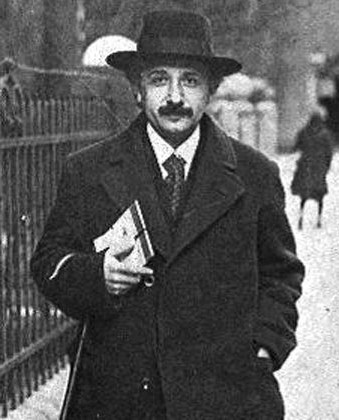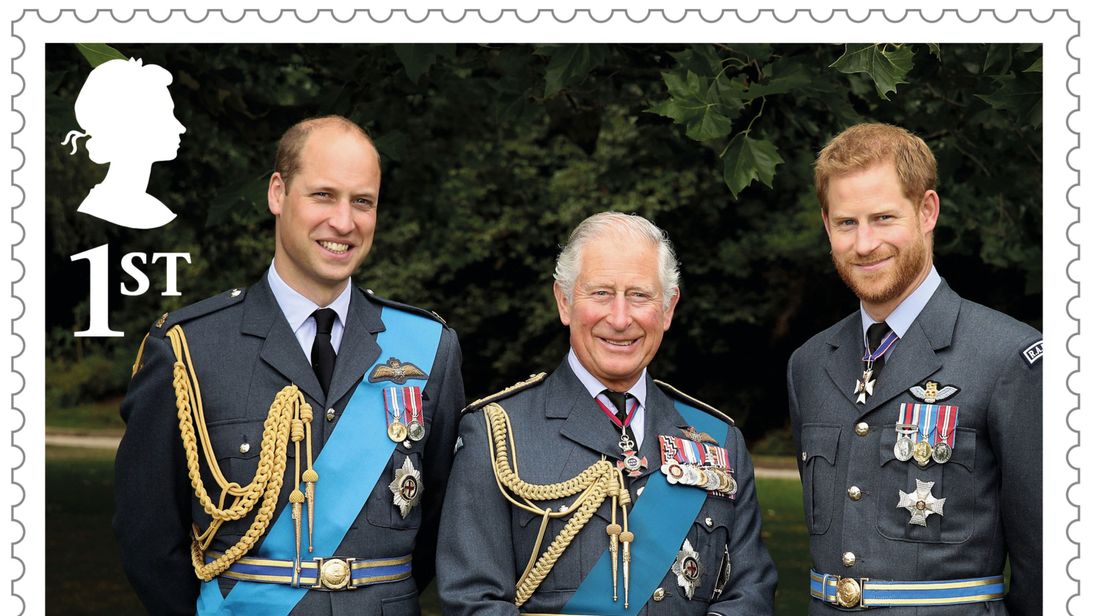November 14, 1941 -
Alfred Hitchcock stylist thriller Suspicion, starring Cary Grant, and Joan Fontaine, premiered in the U.S. on this date.
This was Cary Grant's first role in an Alfred Hitchcock film. Cary Grant was apparently so displeased with his experience with director Alfred Hitchcock during the making of this film that he publicly vowed never again to work with the director. The rift between actor and director was mended,and he would later star in three more: Notorious, To Catch a Thief, and North by Northwest.
November 14, 1964 -
The cult classic Santa Claus Conquers the Martians (the non-MST3K version), starring featuring the cult classic Pia Zadora, premiered on this date.
Most of the film was shot in an abandoned aircraft hangar on Long Island, New York.
November 14, 1966 -
François Truffaut's foray into Science Fiction, Fahrenheit 451, opened in the US on this date.
Among the books burned by the firemen is the film journal Cahiers du Cinema for which director François Truffaut wrote. Pictured on the cover is a picture from Breathless, written by Truffaut. Also among the books burned are The Martian Chronicles and Fahrenheit 451 itself, both written by Ray Bradbury.
November 14, 1975 -
Queen released its fourth album A Night at the Opera on this date (There actually were other songs on the album besides Bohemian Rhapsody you know.)
At the time of it's release, this was the most expensive album ever recorded. The album went on to be a commercial success, debuting at No. 1 in the UK and topping the charts for four non-consecutive weeks.
November 14, 1980 -
One of the greatest films Martin Scorsese ever made, Raging Bull premiered in NYC on this date (I was actually at the premiere.)
In 1978, when Martin Scorsese was at an all-time low due to a near overdose resulting from an addiction to cocaine, Robert De Niro visited him at the hospital, and told him that he had to clean himself up and make this movie about a boxer. At first, Scorsese refused (he didn't like sports movies anyway), but due to De Niro's persistence, he eventually gave in.
November 14, 1988 -
The comedy series Murphy Brown, starring Candice Bergen premiered on CBS TV on this date.
The character Jim Dial was reportedly modeled after TV news reporter Jim Jensen of New York City's WCBS-TV.
November 14, 1998 -
Pixar Animation Studios released the John Lasseter and Andrew Stanton funny animated film, A Bug's Life, featuring the voices of Dave Foley, Kevin Spacey and Julia Louis-Dreyfus, on this date.
The casting of Hopper proved problematic. John Lasseter's top choice was Robert De Niro, who repeatedly turned the part down, as did a succession of other actors. Kevin Spacey met John Lasseter at the 68th Academy Awards ceremony and Lasseter asked Spacey if he would be interested in doing the voice of Hopper. Spacey was delighted and signed on immediately.
November 14, 2014 -
Alejandro G. Iñárritu surprise hit black comedy, Birdman or (The Unexpected Virtue of Ignorance), starring Michael Keaton, Zach Galifianakis, Edward Norton, Emma Stone, and Naomi Watts, went into general release in the U.S., on this date.
Given the unusual style of filming long takes, Edward Norton and Michael Keaton kept a running tally of flubs made by the actors and actresses. Emma Stone made the most mistakes. Zach Galifianakis made the fewest. He actually did mess up a few lines during the filming, but played his mistakes off well enough, that the shots were included in the film.
Another failed ACME product
Today in History:
November 14, 1851 -
Harper and Brothers published Herman Melville's most famous novel, on this date.
Called Moby Dick, the tale is teeming with seamen, spermaceti, and rigid harpoons. Scholars continue to debate its symbolism. The British publisher accidentally left out the ending of the book, the epilogue. This confused a lot of British readers, because without the epilogue there was no explanation of how Ishmael, the narrator, lived to tell the tale. It seemed like he died in the end with everyone else on the ship. The reviews from Britain were harsh, and costly to Melville.
Oops.
In America, Moby-Dick sold for $1.50 but contained the epilog (the great savings were seen by leaving off the ue). At the time, Americans deferred to British critical opinion, and a lot of American newspaper editors reprinted reviews from Britain without actually reading the American version with the proper ending. One reviewer said the book wasn't worth more than 25 cents. It took only two weeks for the publisher to see that Moby-Dick would sell even fewer copies than Melville's previous books. In his lifetime, Melville's royalties added up to a total of about $10,000.
These days, college students buy 20,000 copies of Moby-Dick every year.
Melville said, "It is better to fail in originality than to succeed in imitation."
November 14, 1889 -
Nellie Bly, the pen name of journalist Elizabeth Cochran, sailed from New York to begin her record-breaking 24,899-mile trip around the world - a journey that would end on January 25, 1890.
The around-the-world trip originated in an attempt to beat the Jules Verne's fictional hero Phineas Fogg's 80-day journey. Millions of people followed the adventures of the plucky reporter through stories posted back to the World at every stop. Tremendous celebrations greeted Nellie when she arrived in New York. Her trip lasted 72 days, six hours and 11 minutes - a record that would stand until the Graf Zeppelin circled the globe in 20 days, four hours and 14 minutes in 1929.
November 14, 1908 -
Albert Einstein presented his quantum theory of light for the first time
while future Senator Joseph McCarthy was being born,
on this date, although not in the same room.
McCarthy's communist witch-hunts of the mid-twentieth century live in infamy despite the fact that they failed to uncover a single communist witch.
Einstein's quantum theory remains popular because people like the word quantum. In fact, Einstein's seldom-cited Law of Quantum Usage states that there is an inversely proportionate relationship between one's understanding of quantum theory and one's likelihood of discussing it.
November 14, 1910 -
An airplane, piloted by Eugene Burton Ely, took off from the warship, USS Birmingham, off the coast of Hampton Roads, Virginia, on this date. The plane was the first airplane takes off from a ship.
Ely pilots the plane, a Curtiss Pusher, to a nearby beach, where he lands after only just keeping the plane above sea level.
November 14, 1940 -
The Nazi Luftwaffe's two-day blitz of Coventry, England, began on this date, killing several hundred people.
The German raids, codenamed Moonlight Sonata, destroyed much of the historical, English city.
Bad Nazis.
November 14, 1948 -
Charles Philip Arthur George (Mountbatten-Windsor), Prince of Wales and Earl of Chester, Duke of Cornwall, Duke of Rothesay, Earl of Carrick, Baron of Renfrew, Lord of the Isles, Prince and Great Steward of Scotland, Royal Knight Companion of the Most Noble Order of the Garter, Extra Knight of the Most Ancient and Most Noble Order of the Thistle, Knight Grand Cross of the Most Honourable Order of the Bath, Member of the Order of Merit, Knight of the Order of Australia, Companion of the Queen's Service Order, Royal Chief Grand Companion of the Order of Logohu, Member of Her Majesty's Most Honourable Privy Council, Aide-de-Camp to Her Majesty and heir to the throne of England, was born on this date.
Charles, as of April 21, 2011, was the heir apparent longer that his great great grandfather, Edward VII. Edward VII was heir apparent for 59 years, 2 months and 14 days. Prince Charles has been eligible to draw his state pension for four years now.
November 14, 1968 -
Today was National Turn In Your Draft Card Day - (the Vietnam death toll was fast approached 30,000 and US troop strength in Vietnam reached its peak of 550,000)
featuring burning your draft card hour.
And so it goes
801



No comments:
Post a Comment